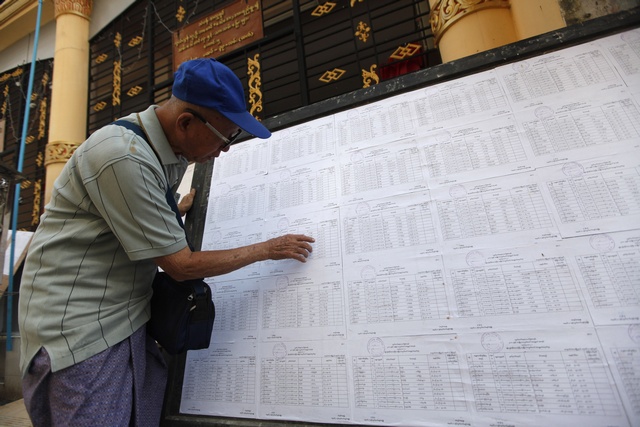Burma has agreed to allow regional observers in to monitor the looming by-elections amid accusations of foul play from the opposition during the run-up to the polls.
The government will also grant permission for media personnel to accompany the delegation of observers, which is comprised of five officials from the ASEAN Secretariat plus two parliamentarians from each of the 10 member states.
A letter sent to the ASEAN Secretariat requested the teams to arrive on 28 March, five days prior to the by-elections.
The decision to allow in monitors follows talks in February between President Thein Sein and the ASEAN chief, Surin Pitsuwan. A statement on the ASEAN website says the two agreed that foreign observers would help to build transparency for the poll, which is being increasingly dogged by claims of voter irregularities and intimidation of opposition candidates.
Several reports have already emerged of the names of the deceased appearing on voter lists in Irrawaddy division. The opposition National League for Democracy (NLD), which says it has faced harassment from government officials and candidates from the ruling Union Solidarity and Development Party (USDP), claims 413 dead people have appeared on the list in Kawhmu, the constituency being contested by Aung San Suu Kyi.
The party released a statement yesterday also alleging that the USDP had donated nearly $US450 to a school in Sagaing division and promised more if locals there voted for them, a move they say breaches election laws.
“This [stands in] violation of the law,” said Nyan Win, NLD’s spokesperson and Campaign Committee manager. “This is bribing. And similar incidents are taking place across the country in many places.”
The party also claimed that election officials in Tenasserim Division’s Longlon township were already collecting early votes, which violates the commission’s ruling that early voting would begin on March 30 and 31.
NLD candidate Min Thu in Naypyidaw’s Uttara Siri township was targeted during a slingshot attack that left one of his security guards injured; however, no one has claimed responsibility or been implicated in the attack.
Last week it emerged that the government-backed Union Election Commission, Burma’s supreme election body, had cancelled voting in 10 villages in the Kachin state town of Hpakant.
Reports from the region said the government cited “security concerns”, although the exact nature of these claims is not clear. It mirrors the controversy that surrounded the November 2010 elections, when voting was scrapped in several ethnic states that meant around 1.5 million could not cast ballots.



